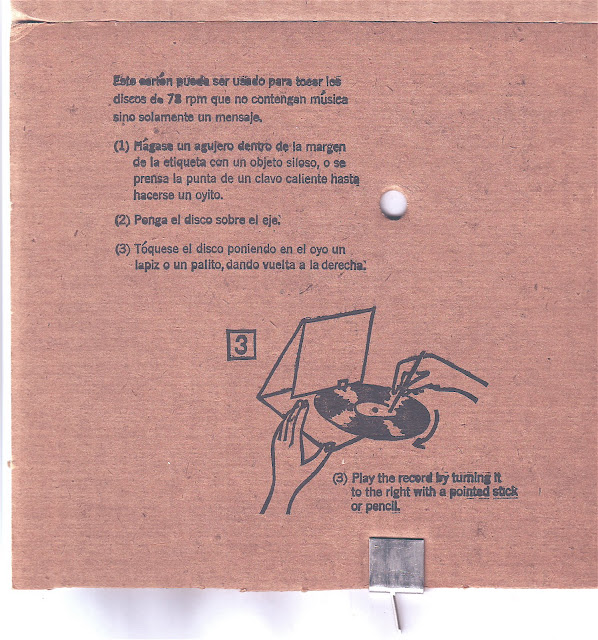|
|
|---|
Friday, June 13, 2008
Honestly, I'm not sure what the point is to this little oddity...
Have you seen one before?
(ADDENDUM: Many have! See below, and see comments on this post for great info and recollections!)
The 'Cardtalk' is essentially a folded piece of cardboard with a nail attached.
You are supposed to use it to play spoken-word 78s.
I found it mixed in with a nice batch of old 78 RPM Rock & Roll records given to me by my friend Ripspix.
He had no clue either. It had come to him similarly, mixed in with a batch of stuff he'd bought.
My best guess is that it was meant to be a novelty item, sort of a science experiment.
I can't imagine that this was intended to be a truly useful piece of sound equipment.
I'll assume that it first appeared a few years following the demise of the 78 RPM format, perhaps early '60's, when the old records were still around but were cast off, outdated items, like 8-tracks and
Beta videocassettes would be in years to follow.
Wait, it gets better. You are also instructed to gouge or burn a hole in the label of the record, so that you can place the end of a pencil or "pointed stick" in it.
By pushing the pencil you begin spinning the record by hand, trying (I guess) to approximate 78 revolutions per minute.
Truth is I couldn't bring myself to really try it all out.
I'm not yet prepared to hear the wonders of
high-fidelity Cardtalk sound reproduction.
I think perhaps that The Cardtalk may have been manufactured as a means of torturing old records.
- - Or more to the point - - of torturing old record collectors.
ADDENDUM, 6/16/08:
PLEASE see comments on this post for helpful information and insights, including the wide use of 'Cardtalk' devices by missionaries to help educate and spread gospel in locations of the world without electricity. Thanks to the folks in the know for sharing their memories!
Labels: audio archaeology




